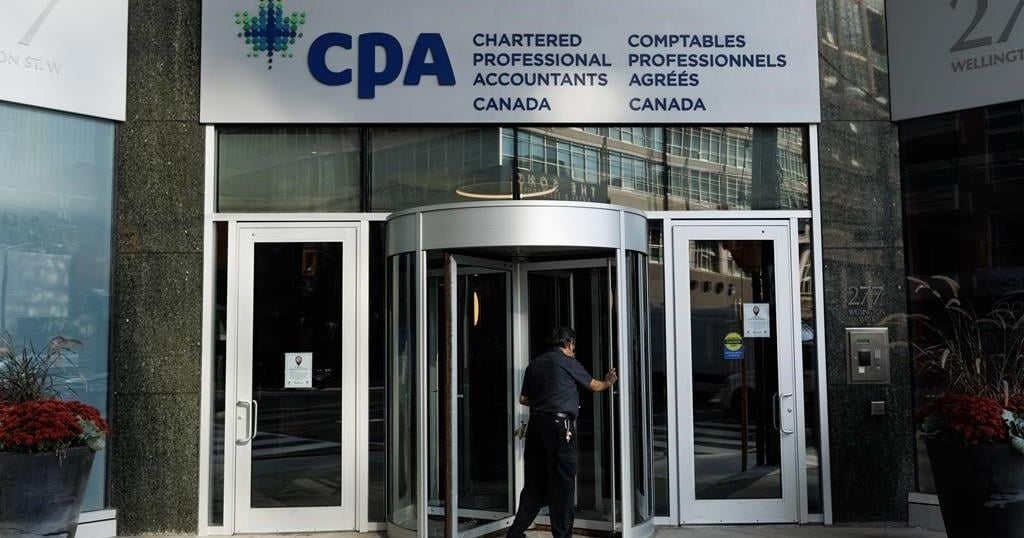Four months out from an unprecedented split between the regulators for accountants in Ontario and Quebec and their national counterpart, CPA Canada is pitching a new, separate membership to accountants in the departing provinces.
On Sept. 4, CPA Canada said provincial members in those jurisdictions can remain part of the national organization for $195 a year.
The provincial bodies may be the regulators for chartered professional accountants, “but we’re the only organization dedicated to CPAs right across Canada,” said president and CEO Pamela Steer in an interview.
However, CPA Ontario and the Quebec CPA Order stressed that CPAs are required to be members of their provincial regulatory bodies, but not necessarily a part of the national organization.
They say they were not consulted on the latest update from CPA but are committed to collaborating with their provincial and territorial counterparts on important matters in the CPA profession, to funding standard-setting and to providing members access to resources including the CPA handbook.
“Our focus remains steadfast: to protect the public, maintain the integrity of the CPA designation in Quebec, and support our members in achieving the highest standards of professional practice,” said Quebec CPA Order spokeswoman Maude Bujeault-Bolduc in a statement.
“Membership in CPA Canada or any other organization is entirely voluntary, not required to practice the profession and should not be confused with membership in the (Quebec CPA Order).”
In June 2023, CPA Canada announced that the provincial organizations for Ontario and Quebec were breaking away from the national group after a multi-year governance review left the parties at odds. An 18-month withdrawal period ends on Dec. 20.
The pending split raised questions about the future role of the national organization for CPAs in Quebec and Ontario.
The provincial, territorial and Bermudian CPA organizations are the regulators and enforcers of the accounting profession in Canada. The national organization was created in 2013 to unify the various organizations. It is responsible for standards, and co-ordinates education as well as the common exam written by all would-be CPAs in the country.
Steer said her organization has been consulting with CPAs in Quebec and Ontario, as well as across Canada, about how to move forward. She said it’s clear CPAs in the departing provinces still want to stay connected to the national organization.
The two departing groups have previously said the split won’t undo the unification of the accounting profession.
When the split was first announced, CPA Ontario president and CEO Carol Wilding said the organization was “too far apart with (CPA) Canada on some fundamentals, and it got to a point where the status quo was not sustainable.”
The Quebec CPA Order at the time issued a press release saying the change would bring more efficiency to its organization and that it would “continue to co-operate with other provincial and territorial bodies, as well as with CPA Canada, when doing so would be judicious.”
One big question for many CPAs was what the split would mean for the national education and exam program.
Last November, CPA Canada and the two provincial groups announced they had agreed upon terms “to maintain the uninterrupted educational journey of CPA students in Ontario and Quebec.” CPA Canada would continue to develop the curriculum and exams, while the provincial bodies would continue to deliver them.
Steer said the term sheet announced last year “identified the significant terms that would be part of a definitive contract, and that contract has to be finalized.”
She’s hopeful an agreement will be announced soon, and said a lot of progress has been made.
“We’re just in that process,” she said. “It was supposed to conclude last February, but we’re getting there.”
CPA Ontario spokeswoman Kathryn Hanley said in a statement that per the binding agreement announced last November, the Quebec and Ontario organizations will continue to deliver CPA education courses, programs and exams in their respective jurisdictions.
Bujeault-Bolduc echoed this in a statement, adding that in Quebec most candidates “do not follow the national professional education program but rather a graduate university diploma program accredited by the Order.”
CPA Canada says despite the split, membership in its organization still offers CPAs national and global representation, access to guidance and expertise, discounts and volunteer opportunities, and other benefits.
“The $195 fee was decided after incorporating many factors, including public declarations from the withdrawing regulators in Ontario and Quebec that they will continue to support important shared priorities of the profession, including education and standards,” CPA Canada said in its update.
It says CPA Canada intends to work with all jurisdictions going forward, though it adds the organization “may work with regulators in Ontario and Quebec in a different way, including how we provide access to proprietary information that supports the profession.”
This report by The Canadian Press was first published Sept. 4, 2024.
